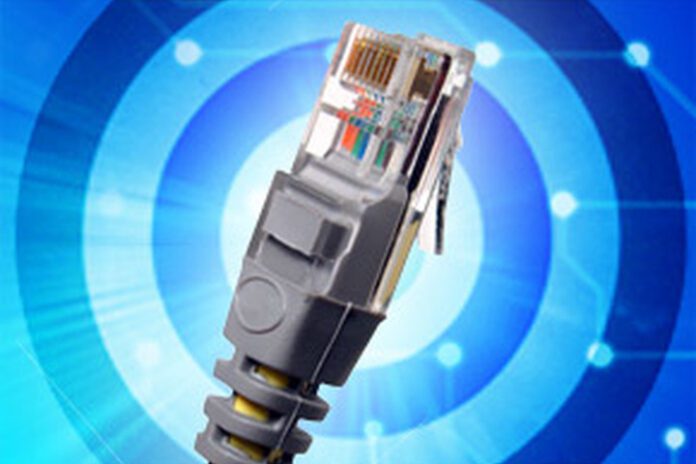Enterprise networking rivals Cisco Systems and Arista Networks have settled their bitter years-long patent dispute, with Arista agreeing to pay Cisco $400 million and with each company saying it will not bring legal action against the other for the next three to five years.
The agreement settling all outstanding legal issues was reached Aug. 6, the day a jury trial to hear the legal case was scheduled to begin in U.S. District Court. The two companies outlined the agreement in a filing with the Securities and Exchange Commission (SEC).
“Cisco and Arista have come to an agreement which resolves existing litigation and demonstrates their commitment to the principles of IP protection,” officials with both companies said in a joint statement.
Along with the $400 million payment, there will be no lawsuits brought over patents or copyrights that are related to current products and for three years the companies will use an arbitration to solve patent concerns related to new products, Cisco and Arista said. In addition, Arista will continue maintaining the modifications it’s made to the products as a result of the legal dispute and will make further adaptations to further differentiate its interfaces from Cisco’s.
The two companies also will continue the appeals process of a 2016 ruling that Arista wasn’t liable for damages in the United States. A decision is expected later this year.
The deal comes more than three years after Cisco officials filed two lawsuits in December 2014 claiming that Arista was using 12 features developed by Cisco and protected by 14 patents in its own products and promoting those capabilities as Arista’s own. Cisco officials noted that most of the executives and many of the engineers at Arista had at one time worked at Cisco, and said that most of the features outlined in the lawsuits came from former Cisco employees who have moved to Arista or by people at Cisco who had worked with those now at Arista.
Arista executives countersued, accusing Cisco of using its dominant position in the enterprise networking space to hurt Arista’s growing business. Arista President and CEO Jayshree Ullal—a one-time Cisco executive—argued throughout the past several years that Cisco was a relic of the networking past and that because it could no longer out-innovate competitors, it was resorting to using the courts to maintain its advantage.
The companies also disagreed over whether Cisco allowed rivals to use its interface technology. The International Trade Commission (ITC) in 2016 ruled that Arista had infringed on three patents and recommended banning certain products from the U.S. market. Arista officials countered by agreeing to change some products by removing the offending technologies.
“It’s been an annoyance to both,” Zeus Kerravala, principal analyst with ZK Research, told eWEEK. “Cisco wanted to make sure its intellectual property was protected. Given its large installed base, it’s fair to say Cisco has become the de facto standard in networking.”
Since launching in 2004, Arista has been a fast-moving competitor, chipping away at some of Cisco’s dominant market share. According to IDC analysts, Cisco held 53.4 percent of the global Ethernet switch market in the first quarter of 2018, down from 58.9 percent two years earlier. Arista’s share grew from 5.1 percent in the first quarter of 2017 to 6.5 percent in the first three months of this year.
“Arista is a formidable competitor, and I think Cisco needed that,” Kerravala said, adding that Cisco had gotten complacent. “If you look, Cisco has been much more innovative over the past several years than in the 10 years before Arista.”
He also said John Chambers, the longtime Cisco CEO who was leading the company when it filed the lawsuit in 2014, likely took Arista’s actions as a personal affront as much as a professional one. Chambers’ replacement, Chuck Robbins, was probably not as emotionally invested in the litigation, the analyst said.
Both Kerravala and Rob Enderle, principal analyst with The Enderle Group, said the distraction caused by the litigation was bad for customers, with Enderle saying it had a larger impact on Arista than Cisco.
“This would have created doubt over Arista’s products potentially reducing sales volume and would have been a larger distraction for the Arista executive team since they were defendants,” Enderle told eWEEK in an email. “Typically, the impact goes to the smaller of the two firms due to resources and to the defendant because they have the highest risk of a catastrophic outcome. It isn’t unusual to have a settlement short of trial; in fact that is the common outcome.”
The backdrop to much of the dispute was the rise of cloud computing and hyperscalers like Google, Amazon and Facebook. The shift in the industry and the need for more responsive, agile and programmable networks led to the rise of such technologies as software-defined networking (SDN) and network-functions virtualization (NFV) as the focus moved from selling networking gear to selling software.
The rapid shift in the industry forced established networking vendors like Cisco and Juniper Networks to aggressively adapt their business strategies while making room for a group of smaller companies and startups in what had been a relatively stagnant market.
Still, Enderle doubted that had much to do with the lawsuit.
“IP theft is serious stuff and there is a lot of it going on right now and that is driving a lot of litigation,” he said. “Given that, I think the cause being tied relatively tightly to infringement is more likely.”
